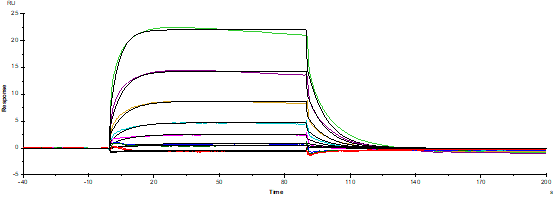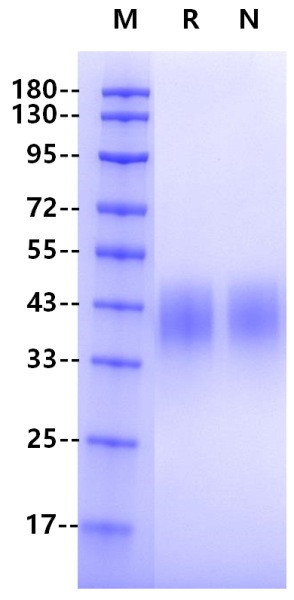IgG Fc receptor (Fc γ R) is a member of the Ig superfamily, which plays a role in activating or inhibiting immune response. Human Fc γ Rs can be divided into three types: RI (CD64), RII (CD32) and RIII (CD16). CD16 is a low-affinity Fc receptor, which has been identified as Fc γ RIII (a (CD16a) and Fc γ RIIIb (CD16b), respectively. These receptors bind to the Fc portion of the IgG antibody and are encoded by two different highly homologous genes in a cell type-specific manner. In humans, CD16a is a 50-70 kDa type I transmembrane activated receptor expressed in NK cells, T cells, monocytes and macrophages, involved in phagocytosis, secretion of enzymes and inflammatory mediators, antibody-dependent cytotoxicity and clearance of immune complexes. Abnormal expression or mutation of CD16a is associated with susceptibility to viral infection, systemic lupus erythematosus and neutropenia in alloimmune newborns. In humans, mutations in a single amino acid of CD16a may affect susceptibility to autoimmune diseases or response to therapeutic IgG antibodies.

